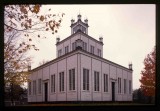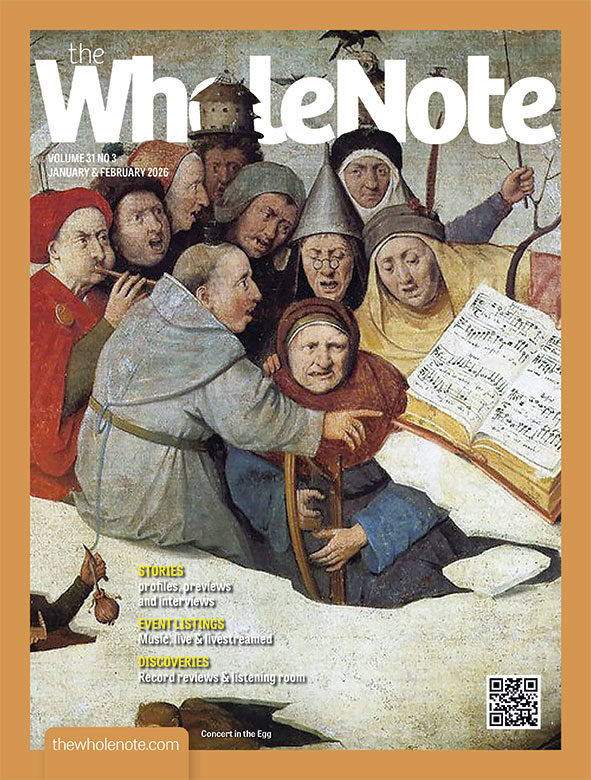It’s Not Over Till It’s Over
TO BEGIN, LET’S remind all those who think of Labour Day as the end of summer that the season officially continues until September 21. This little fact has musical, as well as meteorological, significance – because we at The WholeNote feel it’s our mission, at this time of the year, to remind our readers that we’re still in the midst of music festival season.
And September’s festivals are remarkably diverse. Here in Toronto, we have the Ashkenaz Festival of Jewish music and culture, and the Small World Music Festival. Both festivals feature world music: in one case, progamming is specialized, exploring Jewish musical culture in its breadth and depth; by contrast, the Small World Festival is deliberately eclectic, featuring everything from Cuban salsa to Somali hip-hop.
Outside the city, there’s even more festival activity. Chamber music is well represented by the Sweetwater Music Weekend in Owen Sound; the Prince Edward County Music Festival in Picton; and the Colours of Music Festival in Barrie. At Sweetwater, the featured guests will be the St. Lawrence String Quartet, who have just finished their big 20th anniversary season. The festival in Picton is run by pianist Stéphan Lemelin, who has assembled a group of fine chamber musicians. And Barrie’s Colours of Music has grown into an impressive festival, featuring not just chamber music but also choral and orchestral performances.
And for jazz aficionados there’s the Guelph Jazz Festival and the All-Canadian Jazz Festival in Port Hope. The Guelph festival is famous for an avant-garde approach, and this year is no exception. The Port Hope festival takes a proudly nationalistic stance, featuring many leading Canadian artists.
However, we’re also well aware that September marks the beginning of the “regular” concert season. So we’ve asked our columnists to take a long view of the next concert season, to identify highlights for the coming year. To make their selections, they’ve pored over brochures and perused websites – and it’s fair to say that in all cases they found themselves wishing they could mention more events than space permitted. One thing is clear: it’s going to be a bountiful year for all kinds of music in and around Toronto.
One last thing: in the musical world, it’s a custom to celebrate round-numbered anniversary years. Musical organizations take these opportunities to recall past glories, or simply to state, to quote a Sondheim song, “I’m still here.” (I’ve seen good times and bum times, I’ve seen them all / And my dear, I’m still here / Plush velvet sometimes / sometimes just pretzels and beer / But I’m here.”)
So, in this spirit, we at The WholeNote would like the world to know that our magazine is now 15 year old. From humble beginings, The WholeNote has grown to become Toronto’s and Ontario’s leading publication for classical, world, jazz and folk musics, with publication of 30,000 copies per issue and a website that’s visited 14,000 times a month. We’ve survived good times and bad times – and we’re still here.
—Colin Eatock, managing editor
PS: If I may use this remaining space for a personal note, I’d like to congratulate John Beckwith on his upcoming New Music Concerts programme (September 19). I won’t call it a “tribute” concert, though: those are for composers who are either no longer with us or no longer active. Neither applies here.






